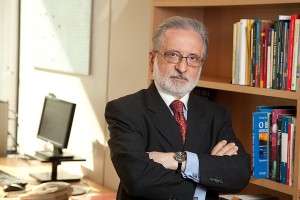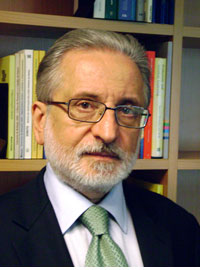The Brazilian economy grows and consolidates. Nevertheless, we still have a lot to do to reduce that level of activity that is not in the official records, which is outside the formal economy. This is called the underground economy, one that does not appear on the formal surface, does not pay taxes, fees or taxes. And, of course, it undermines a country's economic development and compromises labor relations and the business environment.
Informality brings direct damage to society, by creating an environment of transgression and stimulating opportunistic economic behavior, with a drop in the quality of investment and a reduction in the growth potential of the economy. In addition, it causes the contraction of government resources for social programs and investments in infrastructure.
It is difficult to know the exact size of the underground economy, but it is possible to estimate it, to have a rough idea. In 2006, at the request of the Brazilian Institute of Ethics in Competition (ETCO), the Brazilian Institute of Economics of the Getúlio Vargas Foundation (IBRE-FGV) developed a method of estimating the size of this economy. This work has been carried out since then, with retrospective analysis, reaching up to 2003. As a result, in 2003 the estimate showed that the underground economy reached 21% of the Brazilian GDP, a value of R $ R $ 570 billion.
From 2007 to 2009, the estimate showed that the size of the underground economy was at an average level of 19%, that is, around R $ 640 billion, which corresponded to the size of the economy of neighboring Argentina, or twice the economy of the Chile. During those years, the index was somewhat stabilized, growing at a pace close to that of GDP. It was already considered a good indication that the shadow economy did not grow relative to GDP. In the developed countries of Europe, for example, the shadow economy revolves around 10% of GDP. On the other hand, there are countries in the Third World where something like 40% of the economy is estimated outside the formality. Thus, an average of 19% was no longer so bad.
However, the Brazilian economy grows and consolidates. And the good news is that this index dropped in 2011. The 2010 index indicated that the size of the shadow economy was smaller in relation to GDP, dropping to 17%. More precisely, 17,7%, or R $ 651,7 billion. The percentage decreased, although its value in reais was higher, because the GDP also grew, a scenario in itself promising. Therefore, an advance in all directions. Not only because the Brazilian economy has been growing consistently, but the undeclared part of this product has been contracting.
The forecast for 2011, based on this downward trend, is 17,2% of GDP, or R $ 613 billion. This confirmation depends on the final results of the year that will still be released in the first half of next year.
What, after all, is the underground economy? It would be “simple” if the entire underground economy came from 100% parallel activities. But part of the formal economy is also informal. In the case of tax evasion, for example, there is a fine line of variation. Both professionals and companies exercise part of their activities in legality and part in informality, albeit due to different circumstances. The expressions "outside" or "box two" clearly depict what is done to divide the formal from the informal.
For this reason, the effort has been made to clarify the population on the importance of the circulation of goods and services taking place within a formal and regular process, within the economy and not outside it. But awareness is only a first step, and we know that changes occur when there is more than that. They occur when there is real pressure or a need for change.
The fall in the 2011 index shows that there was a real need to change the employment relationship and to value the formalization of employment. One explanation for this is, without a doubt, access to credit. In a context of stimulating consumption through credit lines, the requirement of proof of formal income to obtain financing ends up encouraging the formalization of employment. At the same time, the employee with a formal contract ends up realizing the greatest security in not buying informal products and becomes more sensitive to the appeal and the advantages of formalization. This can lead, at least for optimists, to a virtuous circle of the economy.
Globalization itself has been a driving force in this regard, since export and import require documentation of all kinds. The institutional modernization of Brazil also contributes, stimulating free competition within legitimate market mechanisms in every way. Economic growth, increased formality in employment, a reduction in the shadow economy and a rare confidence in Brazil's future form an auspicious scenario. It is the duty of public authorities and authorities, as well as of the whole of society, to keep a critical and constant eye on this issue. It is time to take possession of this salutary advance in the Brazilian economy and continue an economic policy that has contributed to putting Brazil in the direction of higher levels of development.
Roberto Abdenur is executive chairman of ETCO



 The ETCO Board of Directors, in the person of its president Hoche Pulcherio, swore in today, May 2, to the new executive president of the Institute, Roberto Abdenur. He replaces André Franco Montoro Filho, who, after more than 4 years as chief executive, became part of the ETCO Advisory Board.
The ETCO Board of Directors, in the person of its president Hoche Pulcherio, swore in today, May 2, to the new executive president of the Institute, Roberto Abdenur. He replaces André Franco Montoro Filho, who, after more than 4 years as chief executive, became part of the ETCO Advisory Board.
